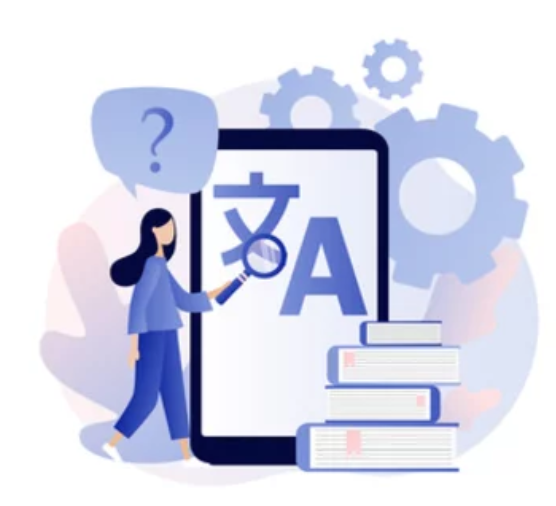Listening to patients in their language

রোগীদের তাদের ভাষায় শোনা
The volume of feedback we get from some inpatients has doubled recently and offering them the option of commenting on their patient experience in Bengali as well as English played an important part in making the feedback process more inclusive.
A Bengali version of the Friends and Family Test (FFT) is available online and we next intend to offer Romanian, which is also a widely spoken foreign language across the group, before adding other languages spoken locally.
We received more than 74,000 FFT responses from patients undergoing a variety of procedures at our hospitals over the last 12 months. The volume is likely to go up further as we make it easier for them to tell us what they thought.
About 60% of responses come through text messages, and while quick for the patients, this format limits the capturing of demographic data. But during the pandemic, the Trust worked hard to replace the old paper questionnaires with online surveys, which offered the opportunity to ask questions in other languages.
About one-third of the local population don’t regard English as their main language. In Tower Hamlets, 18% say they mainly speak Bengali, and in Newham it is 7%.
Response rates from adult inpatients more than doubled between March and August last year and are now running at about 2,600 a month. Responses from maternity patients also doubled, although the numbers remain lower than the national average.
Nikant Ailawadi, director of insight, said:
I am extremely proud that despite the challenges of the Covid-19 pandemic we have still worked hard to make sure the patient voice is heard. The figures are a fantastic achievement and show we are making good progress in ensuring our services fit the needs of the people we care for.
Most of the feedback we get is from people who attend outpatient clinics, although the responses represent a fraction of the 1.5 million appointments held each year.
Patient comments about their experience are a rich source of insight that wards and departments can use to celebrate the thanks they receive, and also learn lessons about how to further improve care.
However, reading them all is quite an undertaking, so we are excited to be one of three trusts selected for an NHS machine learning pilot. This will use a technique called natural language processing to analyse a large volume of texts and highlight the underlying themes raised by patients, relatives and carers, giving teams the opportunity to make meaningful change.
Read more
We're working hard to make Barts Health a truly inclusive place to work and receive care.
 Afrikaans
Afrikaans Albanian
Albanian Amharic
Amharic Arabic
Arabic Armenian
Armenian Azerbaijani
Azerbaijani Basque
Basque Belarusian
Belarusian Bengali
Bengali Bosnian
Bosnian Bulgarian
Bulgarian Catalan
Catalan Cebuano
Cebuano Chichewa
Chichewa Chinese (Simplified)
Chinese (Simplified) Chinese (Traditional)
Chinese (Traditional) Corsican
Corsican Croatian
Croatian Czech
Czech Danish
Danish Dutch
Dutch English
English Esperanto
Esperanto Estonian
Estonian Filipino
Filipino Finnish
Finnish French
French Frisian
Frisian Galician
Galician Georgian
Georgian German
German Greek
Greek Gujarati
Gujarati Haitian Creole
Haitian Creole Hausa
Hausa Hawaiian
Hawaiian Hebrew
Hebrew Hindi
Hindi Hmong
Hmong Hungarian
Hungarian Icelandic
Icelandic Igbo
Igbo Indonesian
Indonesian Irish
Irish Italian
Italian Japanese
Japanese Javanese
Javanese Kannada
Kannada Kazakh
Kazakh Khmer
Khmer Korean
Korean Kurdish (Kurmanji)
Kurdish (Kurmanji) Kyrgyz
Kyrgyz Lao
Lao Latin
Latin Latvian
Latvian Lithuanian
Lithuanian Luxembourgish
Luxembourgish Macedonian
Macedonian Malagasy
Malagasy Malay
Malay Malayalam
Malayalam Maltese
Maltese Maori
Maori Marathi
Marathi Mongolian
Mongolian Myanmar (Burmese)
Myanmar (Burmese) Nepali
Nepali Norwegian
Norwegian Pashto
Pashto Persian
Persian Polish
Polish Portuguese
Portuguese Punjabi
Punjabi Romanian
Romanian Russian
Russian Samoan
Samoan Scottish Gaelic
Scottish Gaelic Serbian
Serbian Sesotho
Sesotho Shona
Shona Sindhi
Sindhi Sinhala
Sinhala Slovak
Slovak Slovenian
Slovenian Somali
Somali Spanish
Spanish Sundanese
Sundanese Swahili
Swahili Swedish
Swedish Tajik
Tajik Tamil
Tamil Telugu
Telugu Thai
Thai Turkish
Turkish Ukrainian
Ukrainian Urdu
Urdu Uzbek
Uzbek Vietnamese
Vietnamese Welsh
Welsh Xhosa
Xhosa Yiddish
Yiddish Yoruba
Yoruba Zulu
Zulu